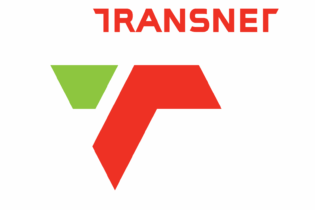Regulations, cartels and crumbling infrastructure raise the cost and delivery times of imports and exports across the continent. New railway plans will help to bring more competition to the transport sector.
Pity the East African truck driver, upon whose weary shoulders lies the burden of East Africa’s exports. Setting forth from Mombasa to Kigali on a route known as the Northern Corridor, he will negotiate the arduous 1,700km journey over five days. He will be on the road for 13 hours between 4.30am and 8pm each day, crawling at an average speed of 53km per hour over an uphill landscape set on some of the most tortuous roads on Earth. Aside from stopping for long hours at two border posts, he will encounter another 45 roadblocks where he will be forced to cough up an average of $158 per trip in bribes. There are also numerous detours caused by road repairs and construction, and even more delays to wait for accidents to be cleared. The East African Community found in 2008 that 95% of East Africa’s cargo is transported by road. In addition, more business is being done within the region, increasing traffic and creating new forms of delay. In Kenya alone, say transporters, there are more than 10,000 long-haul trucks plying the roads. Of the big Kenyan transporters, the likes of R.K. Sanghani, A.O. Bayusuf and Sons, and Multiple Hauliers boast fleets of between 300 and 1,000 trucks. Even with improved fleets, regional regulations that limit axle-load weights mean more trucks, increased road maintenance costs and the slowing down of delivery times. Five years ago, the Rwandan government commissioned a study of the Northern Corridor. A Diagnostic Survey of the Kigali-Mombasa Transport Corridor found that 60% of the journey is spent on the side of the road and that bribes at roadblocks are small but numerous. The biggest sources of delays were what happened before and after the journey due to Rwanda’s limited truck availability, slow import/export procedures and cargo-handling problems. Despite this, World Bank studies praised Rwanda’s deregulation of the haulage industry in 1994, when the end of the monopoly of state-owned company haulier [I]Société de Transport International au Rwanda[/I] led prices to drop by 75% in real terms. Middlemen and Mafia In West Africa, delays and high costs are caused by the stranglehold of middlemen. In Côte d’Ivoire, a hub for transporting goods to landlocked Burkina Faso and Mali, a group of businessmen maintain a tight grip on the sector. They represent shadowy interests linked, some officials told [I]The Africa Report[/I], to Corsican families. Ivorian cashew farmer Moussa Traoré had a problem getting his produce to Burkina Faso twice a week. The 1,120km journey cost 1.2m CFA francs ($2,400) per trip. “That price is clearly not going to be affordable for most small-time business owners. I tried asking different operators, but the cost was always the same. Eventually, I realised what it boiled down to was price fixing,” he said. “They know the trucks that are in a good state,” Traoré explained. “When I tried to get around the prices [they offered], I found the only trucks willing [to take my goods] were in a pitiful condition, had very few clients and unreliable drivers.” These trucks did not have Global Positioning System trackers, a major headache for any client, he added. Creaking roads and poor maintenance ruled them out of many rural areas during the rainy season. Traoré returned to “the very first middleman I visited – there are no real alternatives to road transport. “ The soaring cost of transporting goods on West Africa’s roads remains among the highest in the world, curbing investment and preventing progress in a sector in which a plethora of small-time and inefficient owner-operators are the only alternative to expensive multinationals.No negotiation USAID
West Africa Trade Hub, which works to improve conditions for the region’s exporters, estimates that in Ghana only four or five large companies, such as the Global Haulage Company, focus solely on trucking. Company owners say that many transporters operate informally, making it difficult to identify and fix problems that keep costs so high. A 2008 study by the Africa Infrastructure Country Diagnostic said the root of the problem was clear: ‘Deregulating the trucking industry in West and Central Africa is less a technical than a political and social issue.’ The report argued: ‘Whenever competition does exist, it is not based on price and quality of service, but on the capacity to circumvent the rules and capture loads with little or no negotiation on prices or services quality.’ In Nigeria, for example, a lack of political connections means the risk of, as one company owner explained, “haggling for a week over a $10 bribe just to get your container on the road”. Poorly integrated markets and language barriers also contribute to the problem in West Africa. Much-touted plans to upgrade the Abidjan–Lagos corridor have also faltered amid wrangling on bilateral agreements. Infrastructure deficits also play a part. An official from Dangote Group, which runs a haulage business of more than 5,000 trucks under the brand DanTrans, estimated that upgrading roads in Nigeria could translate into a 5%-10% reduction in costs. In East Africa, a major factor associated with increased cargo costs is the region’s largely moribund railways. It is only now that landlocked Rwanda is planning a national railway network. The Kenya-Uganda railway that opened up the region to the rest of the world 110 years ago has been in a critical condition for decades. “Even if you had the railway in working order, because it is a linear route rather than spread out across the region, you would still need trucks to move goods from the terminals to the final destination,” explains one Nairobi-based transporter. Last year, Egyptian private equity firm Citadel Capital sunk $300m into Rift Valley Railways, the operator of the Kenya-Uganda railway. The funds are to be devoted to upgrading the rolling stock and “getting the trains to run on time”, emphasised Citadel’s managing director Karim Sadek. Once fully implemented, Citadel’s plans could cut haulage costs by 40% and usher in the long-delayed migration from road haulage to rail, offering a long-term solution to East Africa’s perennial transport crisis. Source: theafricareport.com





